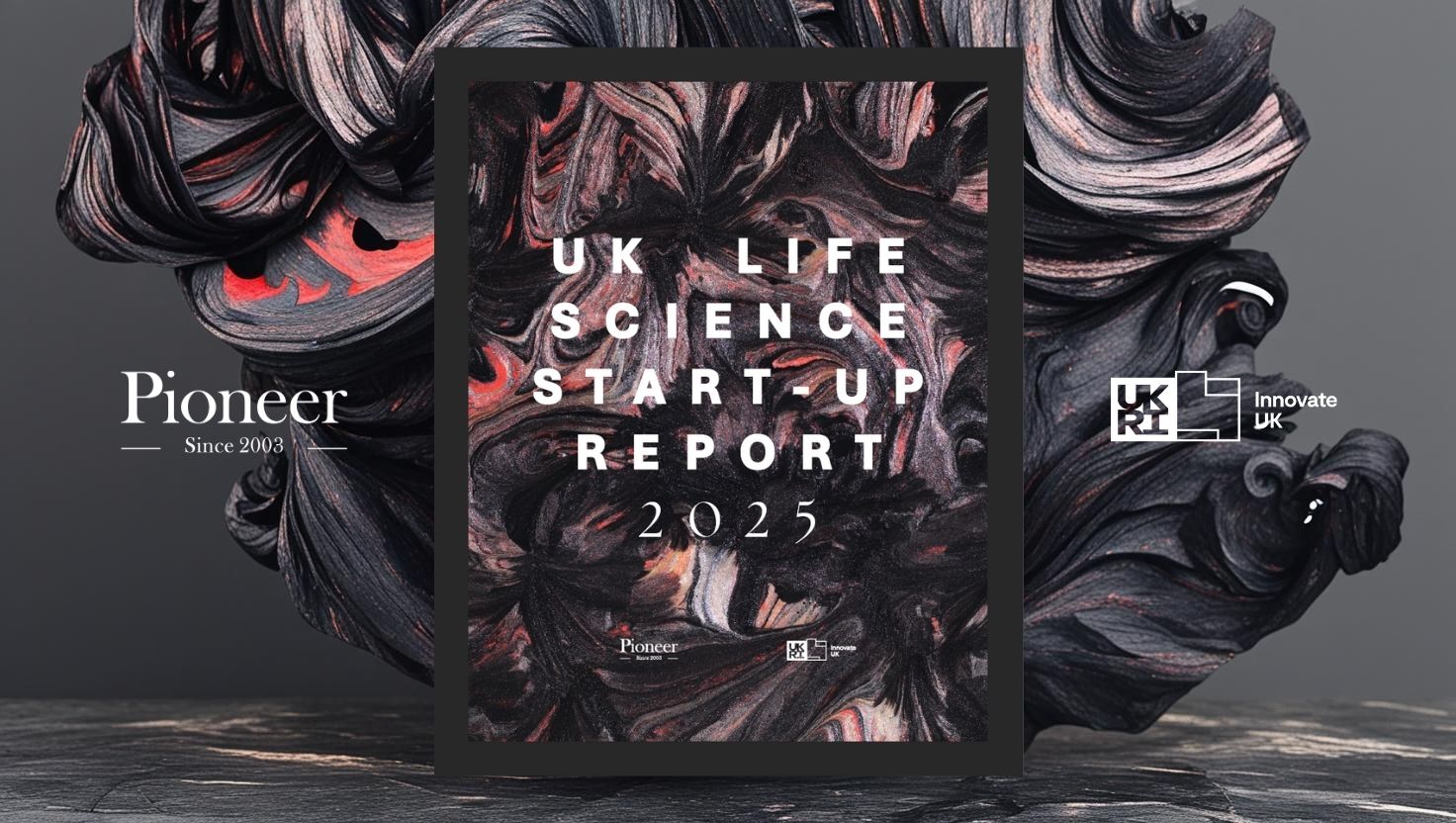New research confirms growing investor interest in later-stage life science companies

Research conducted by Pioneer Group in collaboration with Beauhurst into the UK life sciences landscape reveals a growing trend of investment into more mature companies. The report also highlights a persistent regional imbalance, with ‘Golden Triangle’ university spinouts attracting significantly more funding than those elsewhere.
Whilst the number of deals in 2024 decreased slightly compared to previous years, the average deal size increased, with life science companies raising £3.54bn across 595 deals in 2024 - up from the £2.91bn raised via 656 deals in 2023. Crucially, average deal size rebounded to £6.19m, the second-highest figure over the decade after the 2021 spike of £6.83m.
Venture-stage life science companies saw a significant rise in their share of deal value, from just 12.7% in 2022 to 44.4% in 2024, alongside a corresponding increase in deal volume, pointing to an increased investor focus on more mature life science businesses.
Pioneer Group, a specialist in life science infrastructure and venture building, has published its annual Life Science Start Up Report (previously under BioCity) for a decade, with data extending back as far as 2005.
Speaking about the current landscape and the findings of the report, Pioneer Executive Director Dr Glenn Crocker MBE says: “Like many other industries, there is currently a great deal of concern about the state of the funding environment for life sciences and its implication for the health of an industry that is widely acknowledged as being vital to the future economic success of the UK. Whilst these concerns are justified, comparing our first Life Science Report to our most recent research highlights just how far the industry has come. Start-ups formed in the period of 2005 to 2009 raised a total of £372m in those years, while companies formed in the 2020 to 2024 bracket raised just under £3bn – eight times as much. Whilst the environment for early-stage life science companies is certainly tough, we should also acknowledge and celebrate just how far the industry has come on the back of the hard work and risk-taking of many key players in the sector.”
The report highlights the continued concentration of life science start-ups and university spinouts in the south of the UK, particularly in London, the South East, and the East of England – collectively known as the ‘Golden Triangle.’ Universities in Oxford, Cambridge and London generated the highest number of spinouts and attracted the largest share of equity investment. However, the research also indicates a persistent geographical imbalance, with emerging clusters in cities like Manchester, Glasgow and Belfast receiving significantly less capital and support, despite their research strength.
“Regional variation is especially clear in the spinout population, where a small number of institutions account for a large share of the life science company population.” Glenn Crocker explains. “If all life science spinouts from the top 15 UK biological sciences research universities raised the same average amount as those emanating from Cambridge, the total additional investment into these 178 businesses over five years would be £1.6bn. Whilst it does not always follow that a well-funded company is going to be more successful, it is reasonable to assume that a poorly funded business will usually struggle or develop more slowly. The development of a UK life sciences fund that can target £300m a year at spinouts from these top universities could have a significant impact.”
Download the full Life Science Start-Up Report here: https://thepioneergroup.com/life-science-start-up-report-2025/





















